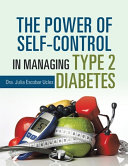Julia Blandon
A brief message to my readers about my interest in publicizing my medical experience in Community Public Health focused on chronic diseases, especially type 2 diabetes, long-term complications of diabetes and metabolic syndrome X. I have worked for more than 30 years managing and preventing the complications of type 2 diabetes that I suffer, also as a doctor and head of public health project programs in the USA for more than 14 years and in Nicaragua for more than 5 years in diabetes and complications, apart from my professional experience as a medical specialist. Due to the characteristics of the people that I work in, it is in my interest and public health to convince people to make changes in their lives to prevent diseases, control their diseases, and teach them how they can improve their knowledge of their health, their feelings, faith and hopes to live a full life. Low and medium income families are the most affected when obtaining quality of public health services and other services that are insured in our society. When we educate and provide medical services to people we are also giving medical alternatives to have a healthy life. It is not easy to convince people who are in a state of despair and in whom their faith has been lost; in those people who can improve their quality and life expectancy of the years they will continue to live and those in whom socio-economic problems limit their access to health care. In my experience, in particular, I believe that people need to be trained in life to survive the adversities of life itself and the environment in which they live to face a chronic illness. People respond when they participate in their interest and benefit to have a healthy and happy life. Community public health leaders are the only people who are well trained to have the ability to deal with the rights and needs of a community as well as the health teams involved in primary and direct care with the sick. They have the vision and mission of implementing, executing and working with health policies to have a healthy community. I have had the opportunity to meet and work on the health of people from different countries, cultures, thoughts, behaviors and from different social systems that make me understand the human rights process in terms of quality and life expectancy. All social and health behaviors of the human being are equal, people are born with rights and they deserve to be treated with dignity and respect. Eliminate health disparities by training people in managing their health and professionals to make changes in people's lifestyle and; Ensuring the quality of health for all people is the main point when dealing with a patient with chronic disease. The author is a doctor and surgeon graduated from the University of Havana, Cuba in 1986 and incorporated to the National Autonomous University of Nicaragua where she began her work experience during her social service in 1986 in military public health, planning, implementing, managing and coordinating the prevention, control and management of adult diseases, control and management of physical health to the military. Control and quality of food and epidemiological risk. The author is a graduate in the specialty of gynecology and obstetrics in 1991 at the National Autonomous University of Nicaragua in Managua and continues her experience in the practice of private medicine in her clinics and Chief of Gynecology and Obstetrics Services at Germán Pomares Hospital in Juigalpa Chontales and at the Luis Felipe Moncada Hospital in San Carlos, Rio San Juan. Since 2003, the author has continued to expand her experience and studies in community public health in chronic diseases through the public health department of the state of Nebraska and her personal interest in the USA and recently in Nicaragua. She has been coordinator of projects for minority health and bilingual health educator in Community Public Health with extensive experience in the self-control of diabetes and related chronic diseases. The author is a graduate of the University of Nebraska in Omaha in Leadership in Public Health in 2010. In addition, having received other training in the health department including the management of multiple programs, the author is knowledgeable and familiar with the Standard guidelines for public health education and promotion of the World Health Organization, the Center for Disease Control and Prevention of the US Department of Health and Human Services and the Unique Public Health System of Nicaragua. He has several acknowledgments of his work in the community granted by the Department of Health and the Office of Minority Health of the State of Nebraska and the University of Lincoln Nebraska in the evaluation and approach of the communities of Northeast Nebraska in the implementation and execution of the standard model of diabetes management and self-control in minorities. Recognition granted by the Medical Society of Esteli, Nicaragua during its participation in the XV Medical Congress with its presentation on Acanthosis Nigrican a high risk for the development of Diabetes Mellitus.

